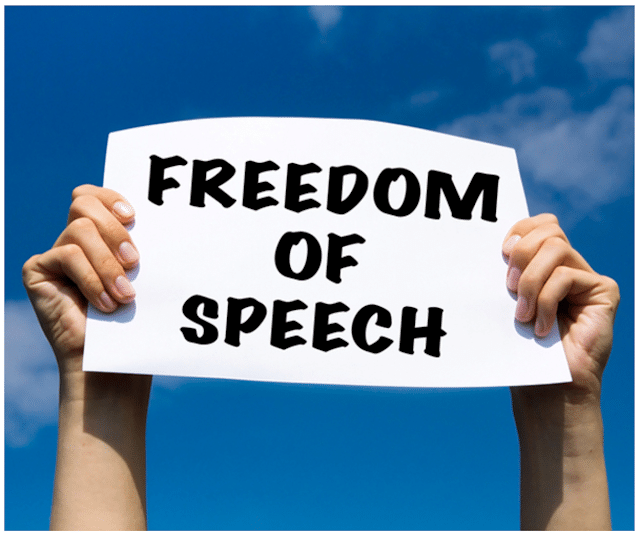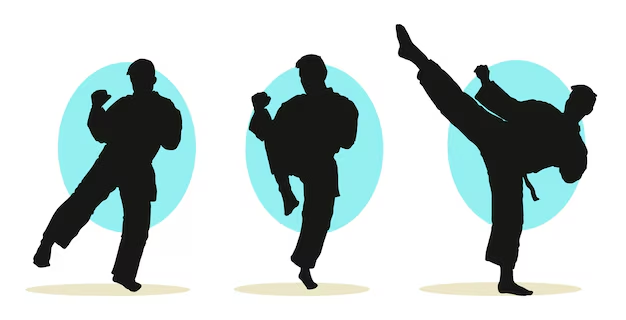In schools and most organisations, we do not hesitate to intervene to stop certain types of talk – most obviously threats, insults, and anything along racist, sexist or homophobic lines. It seems pretty obvious that freedom of speech in not an absolute right, but one that exists with a whole slew of others. Isaiah Berlin’s quote – the title of this post – clearly suggests that sometimes freedom of speech has to be curtailed to prevent it being used as a weapon to attack others.
Berlin was writing decades ago, but social media has made this problem increasingly acute. Facebook initially banned ‘white supremacy’ on its platform, but explicitly allowed ‘white nationalism’ and ‘white separatism’, presumably seeking to minimise intrusions into free-speech. However, after backlash from civil rights groups and historians who say there is no difference between the ideologies, Facebook recently banned all three. This is, to my mind, a great step – while anyone has the right to think what they want, there is no automatic right to advertise ideologies in public spaces (virtual or otherwise) and Facebook is doing the right thing. Brian Fishman, Facebook policy director of counterterrorism gives this justification : “We decided that the overlap between white nationalism, [white] separatism, and white supremacy is so extensive we really can’t make a meaningful distinction between them” (interestingly, Twitter and YouTube have not, so far, followed suit). This approach is the most extreme that Facebook can take – removing offenders from its community.

Facebook can delete offensive posts and indeed offensive accounts quite easily – that’s one extreme. Families are at the opposite end of the spectrum – no matter what a child says or does, he or she is part of the family. No deletion possible! Schools are somewhere in the middle – we are a cross between families and businesses; and the problem is a slightly different one for us, because our aims are not just to provide unpolluted airspace for our students but actually to educate – to change offensive views into better ones, not just to suppress them. So if we have someone who says something, or posts something that shows their values are not aligned with our views (and we unashamedly do have moral positions) then as well as a problem, that’s actually an opportunity for us to do our job. If we never had any such misalignments, then we would never have such powerful teachable moments.
School leaders can come under pressure to remove some students who make public some unacceptable views – that is, to adopt the Facebook approach. The idea is that some students poison the collective well and need to be removed for the greater good. But just asking those students to leave would likely do little to actually change racists’ view (or those of sexists or homophobes or whatever), and would simply push them into other communities, where they would probably just poison other wells, perhaps even more angrily. It would, in other words, be just passing the problem on, rather than trying to solve it (that’s not to say that sanctions are never appropriate and I have written about that before). And it would do nothing to help those people become the better versions of themselves; the ones that they have the potential to be. Reaching those better selves should the goal of all schools.
Defining the exact border between acceptable and unacceptable is notoriously difficult, but as world politics shows us every day, that doesn’t mean that we cannot recognise when there’s a problem with what some people are saying. Singaporean ambassador-at-large Bilahari Kausikan has likened problems with freedom of speech to an elephant: It may be difficult to define an elephant, but nobody should have any difficulty in recognising an elephant and if one is too obtuse or stubborn to recognise an elephant, then you should not complain or be surprised if the elephant steps on you.
So when these issues arise in schools, they are quite tricky – but the overall principle has to be that freedom of speech, like every other freedom, is one right among many.
References
Cox, J and Koebler, J (2019) Facebook Bans White Nationalism and White Separatism. Motherboard
Berlin, I. (1969), Four Essays on Liberty. Oxford University Press



1 Response
So much inspired with the documents you have shared. Thanks a lot, this was much useful and handy. Tuition Services in Bishan